Overview
This article examines how augmented reality (AR) companies are revolutionizing e-commerce experiences. By enhancing customer engagement and driving sales through immersive technologies, AR is transforming the online shopping landscape.
Research indicates that AR applications can significantly boost sales—by up to 80%—and improve customer interaction. A large percentage of consumers express a preference for shopping with AR features, underscoring the importance of integrating these technologies into e-commerce strategies.
As brand managers seek to elevate their online presence, embracing AR is not just an option; it is a proven strategy for success.
Introduction
As the digital marketplace evolves at an unprecedented pace, augmented reality (AR) is emerging as a transformative force in e-commerce. With its potential to enhance customer engagement and drive sales, AR technologies are reshaping how consumers interact with products online. This article explores ten innovative AR companies leading the charge in revolutionizing e-commerce experiences. How can brands harness these advancements to not only meet but exceed customer expectations in a competitive landscape?
Magic Playbox: Transforming E-Commerce with Immersive AR Solutions
Magic Playbox has positioned itself among the leading AR companies, fundamentally transforming how brands connect with their customers through augmented reality solutions for e-commerce. By crafting immersive interactions that allow users to visualize products in their own environments, the studio significantly enhances the online shopping experience.
Research indicates that AR applications can increase sales by up to 80%, while 63% of customers believe that AR would enhance their shopping journey. This demonstrates the technology's effectiveness in fostering customer engagement and loyalty.
With a commitment to tailored solutions, Magic Playbox guarantees that each project aligns with the unique objectives of its clients, positioning them as a preferred partner for innovative e-commerce strategies.
As AR companies project the AR market to reach $50 billion by 2024, e-commerce brand managers must consider integrating AR features into their platforms. Doing so not only keeps them competitive but also meets the evolving expectations of consumers.
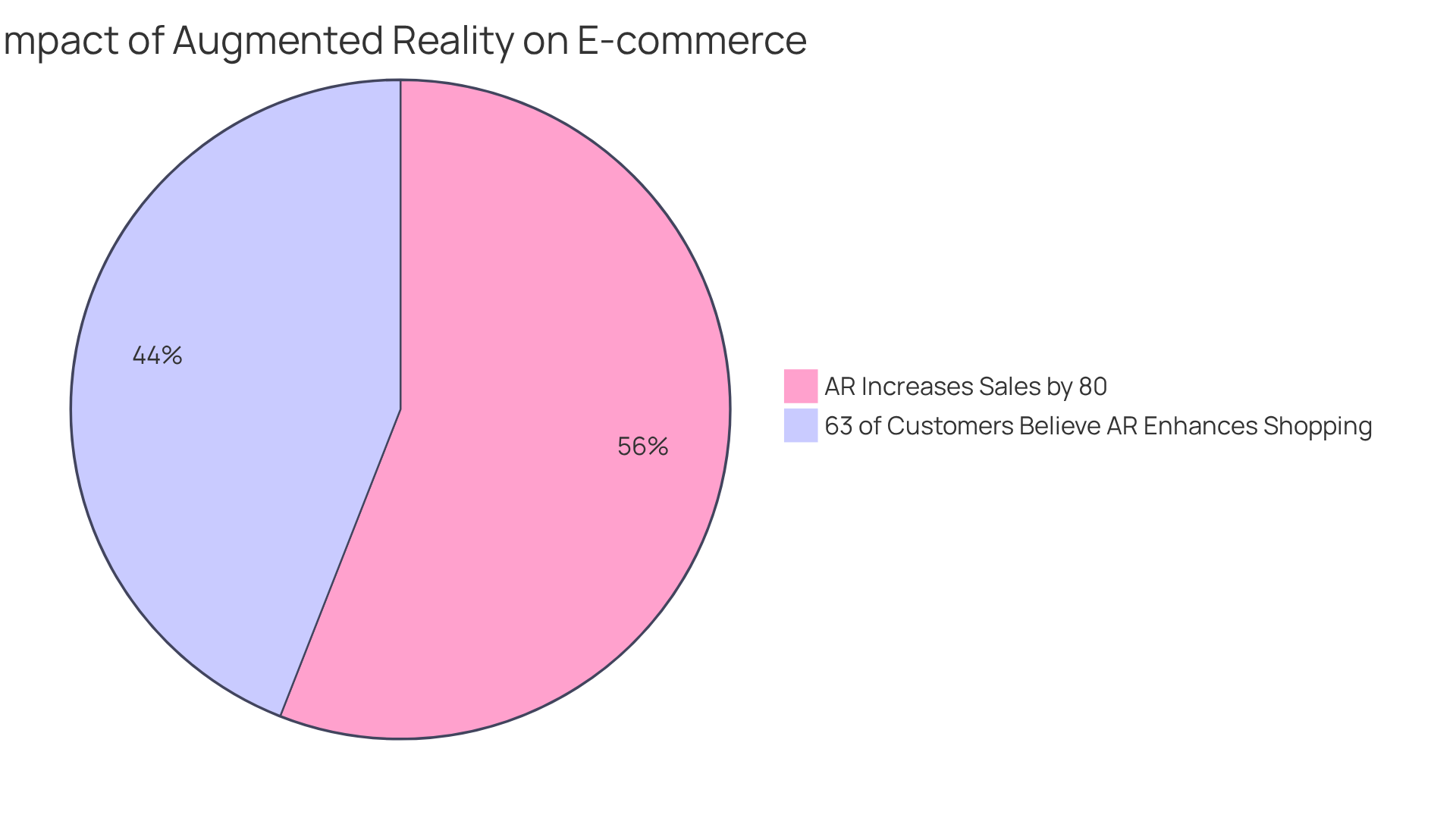
Apple: Pioneering AR Technologies for Enhanced Shopping Experiences
Apple has emerged as a leader in augmented reality technology, particularly with the launch of ARKit, which empowers developers and AR companies to create compelling AR applications for iOS devices. This groundbreaking innovation has democratized the field for AR companies, enabling retailers to incorporate features like virtual try-ons and interactive product displays. Such enhancements significantly enrich the shopping experience, fostering increased consumer engagement.
Research indicates that AR can elevate conversion rates by as much as 40%, with 61% of consumers expressing a preference for retailers offering AR interactions. As AR companies continue to advance their technology, the integration of AR into retail strategies is poised to transform customer interactions, ultimately driving satisfaction and loyalty in the fiercely competitive e-commerce landscape.
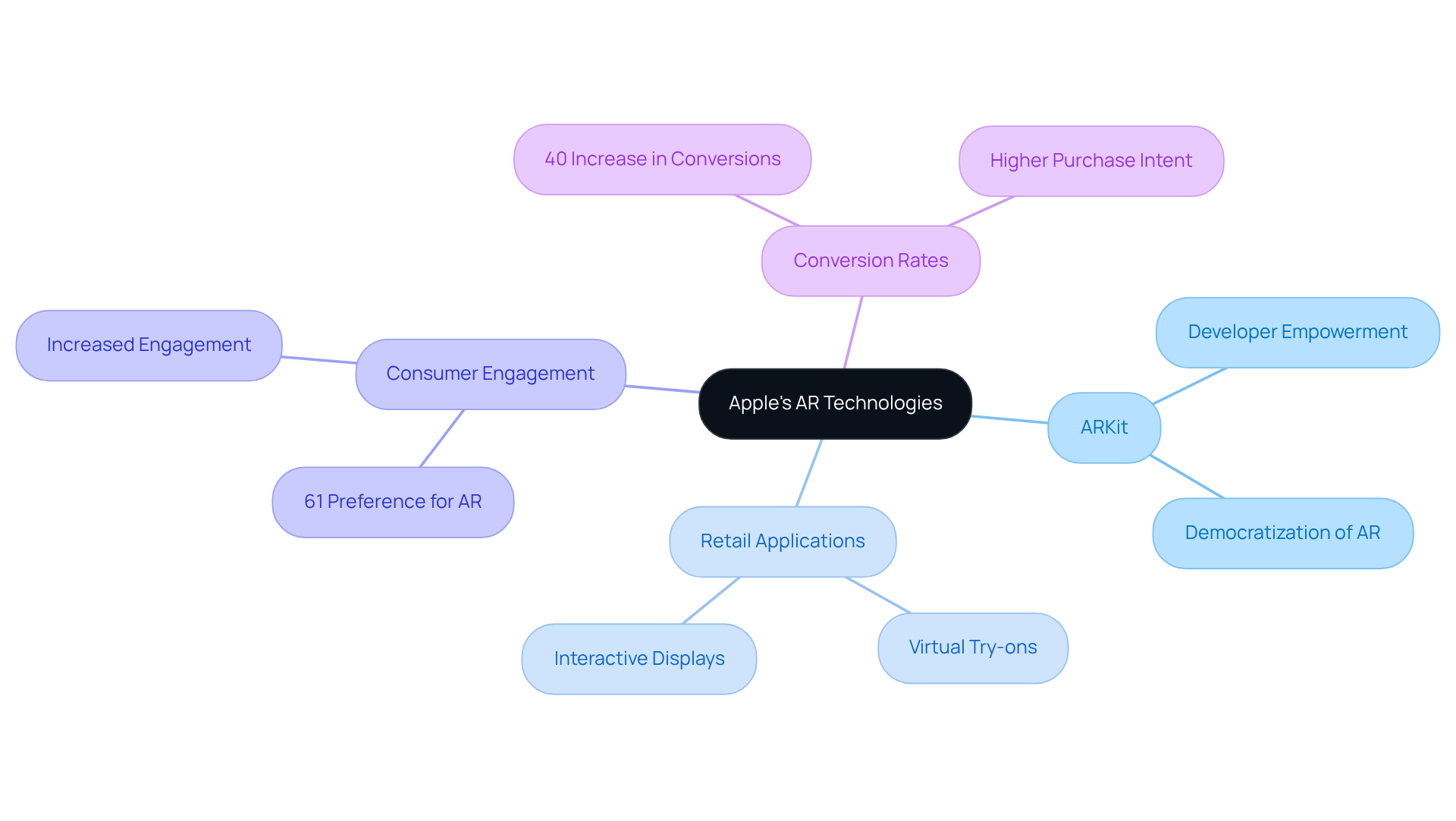
Meta: Leveraging AR for Social Commerce Innovations
Meta has revolutionized social commerce through the seamless integration of AR companies and augmented reality into its platforms, particularly Instagram and Facebook. Features such as AR filters and virtual try-ons empower users to interact with products dynamically and engagingly. This enhancement not only enriches the shopping experience but also fosters social sharing, significantly boosting visibility and sales.
Notably, brands that leverage AR filters have reported engagement levels up to 11 times higher than those of static displays. Furthermore, research indicates that 92% of Gen Z consumers express a strong desire to utilize AR tools for e-commerce, prompting retailers to invest heavily in these transformative technologies.
Leading the charge in immersive AR experiences, AR companies such as Enchanted Playhouse provide tailored solutions that enhance customer interaction and drive sales. The AR modules from this platform can elevate sales by as much as 80% for businesses, underscoring the effectiveness of AR in increasing user engagement and revenue.
Meta's unwavering commitment to AR innovation cements its status as a frontrunner in the rapidly evolving social commerce landscape, where user engagement is paramount for driving growth. To capitalize on these insights, e-commerce managers should consider integrating features from AR companies, including those offered by Magic Playbox, into their marketing strategies to enhance customer interaction and propel sales.
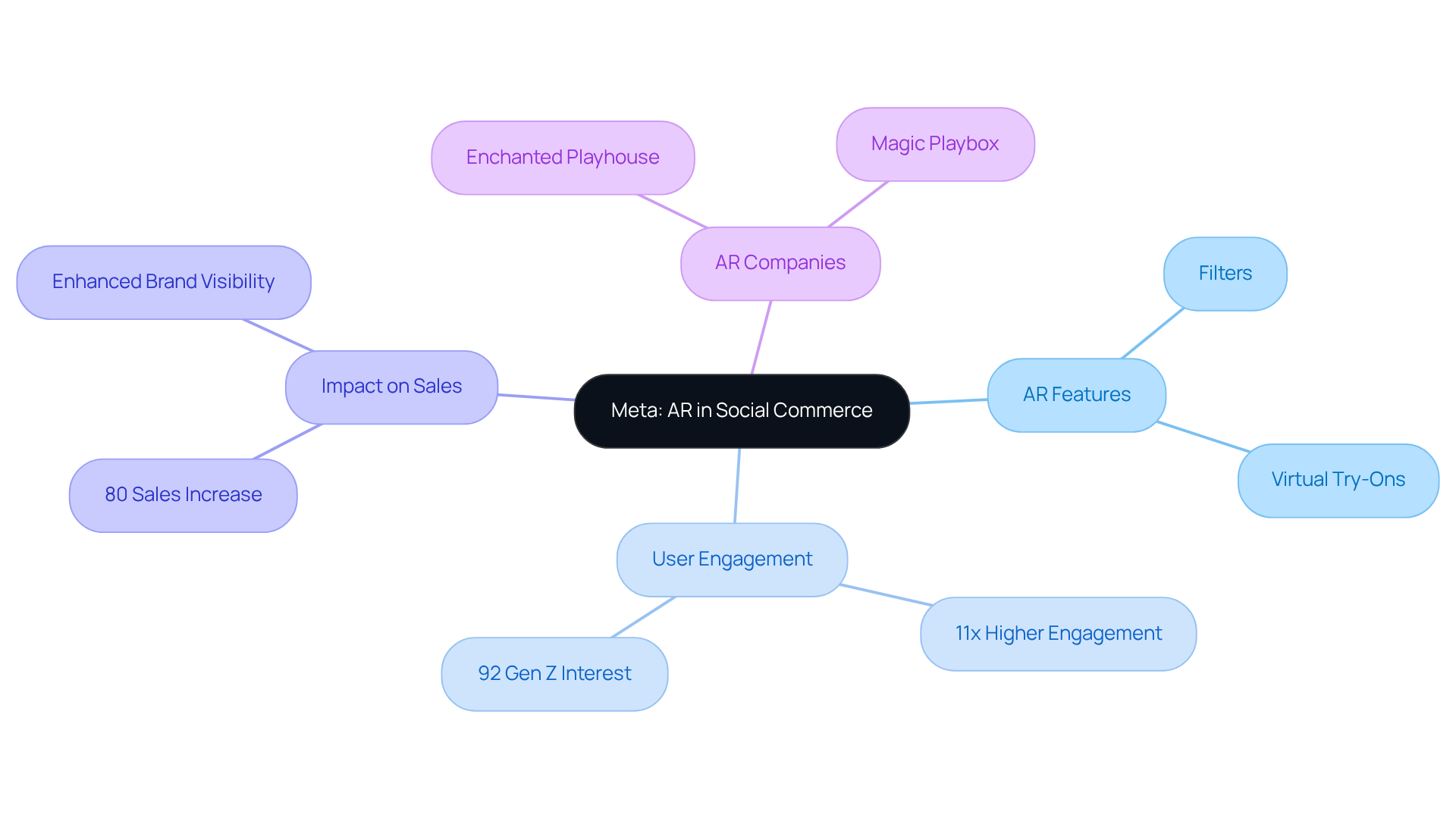
Google: Redefining Product Interaction with AR Innovations
Google has emerged as a frontrunner in augmented reality, leveraging its ARCore platform to empower developers in creating engaging AR applications for Android devices. By seamlessly integrating AR into Google Search and Google Lens, users can visualize products within their own environments, significantly enhancing their decision-making process. This innovative approach not only boosts user satisfaction but also increases engagement and conversion rates for e-commerce companies.
Research indicates that:
- 63% of customers believe AR enhances their shopping experience.
- 71% would shop more frequently if AR were available.
- 75% of consumers expect AR services when shopping online, underscoring the growing demand for this technology.
Additionally, AR technology aids in reducing high return rates by enabling customers to make informed decisions. As a result, Google's commitment to AR companies is transforming how consumers interact with products online, positioning it as a pivotal player in the evolution of e-commerce. Notably, the incorporation of AR modules can enhance sales by up to 80%, demonstrating its effectiveness in driving conversions for online retailers.
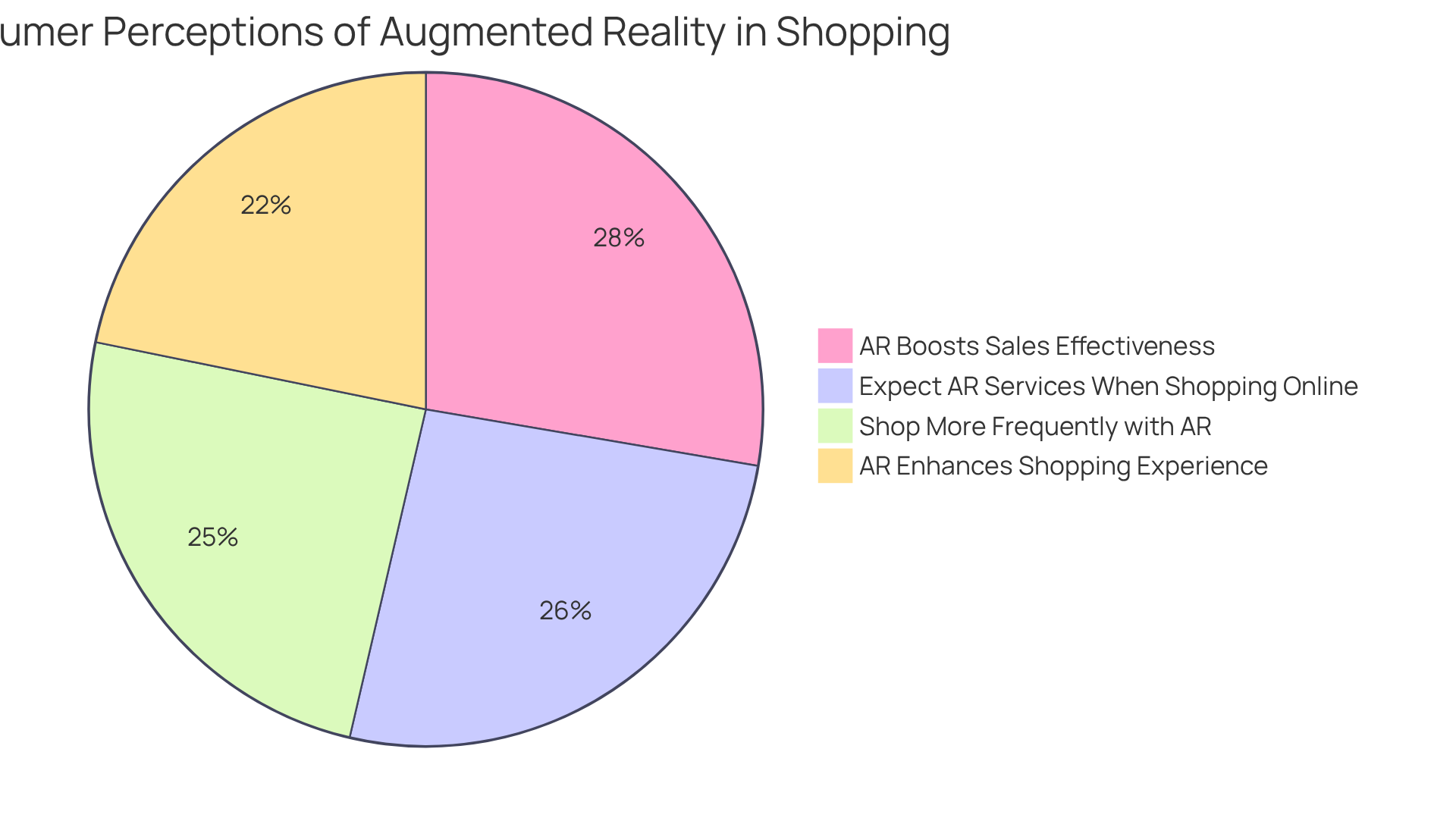
Microsoft: Enhancing E-Commerce with AR in Enterprise Solutions
The innovative platform stands at the forefront of integrating AR companies into e-commerce, revolutionizing how brands engage with customers. By harnessing cutting-edge AR and XR solutions, the company empowers retailers to create engaging interactions that enhance product visualization and customer involvement. Their technology facilitates virtual try-ons and interactive product demonstrations, significantly improving the shopping experience. As a result, AR companies leveraging solutions from this platform can cultivate stronger customer loyalty and satisfaction.
With an increasing number of consumers favoring shopping experiences enhanced by AR, the innovative platform is uniquely positioned to assist retailers in bridging digital and physical interactions, ultimately driving sales and crafting unforgettable customer journeys.
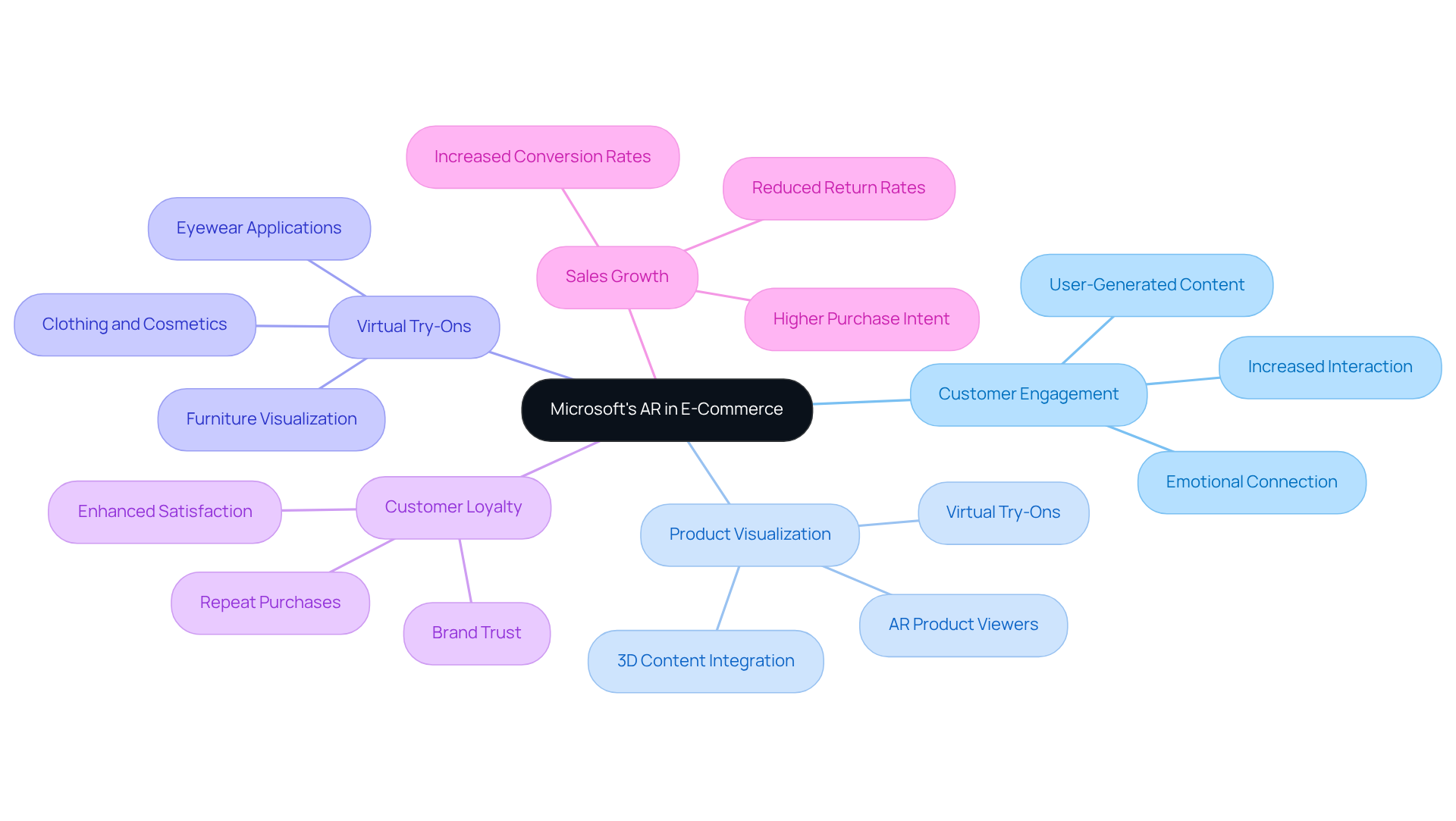
Unity: Empowering E-Commerce Brands with AR Development Tools
The innovative platform stands at the forefront of augmented reality application development, equipping AR companies with essential tools to craft engaging environments. Through its pioneering AR and XR solutions, the company enables the creation of cross-platform AR applications that function seamlessly across a variety of devices. This adaptability proves particularly beneficial for e-commerce businesses, empowering them to deliver captivating product visualizations and interactive experiences that deeply engage consumers.
As industry leaders observe, the evolution of AR mirrors the explosive growth of mobile applications, highlighting its transformative potential in customer interactions. The company's commitment to empowering enterprises is vital in advancing the role of AR companies in the e-commerce sector, positioning it as an indispensable partner for those aiming to enhance their digital presence and consumer engagement.
Notably, AR is anticipated to become a fundamental aspect of daily life, akin to mobile apps, with the potential to elevate sales by up to 80%, underscoring its transformative impact on the retail landscape. As Muchaneta Kapfunde articulates, 'This [Retail] is a sector where AR is revolutionizing the way we shop by bridging the gap between digital and physical worlds.
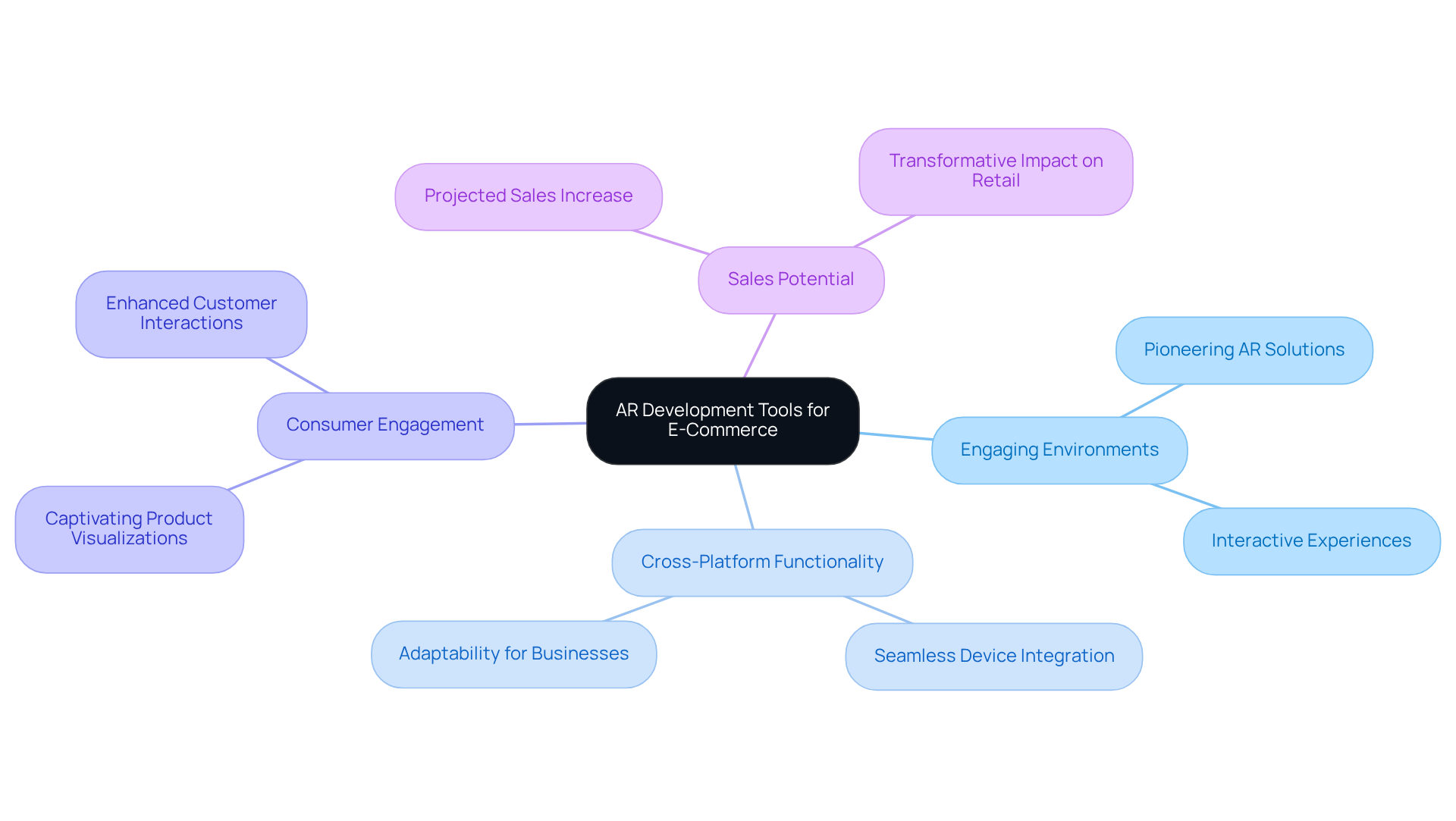
Snap Inc.: Driving E-Commerce Engagement through AR Marketing
The innovative platform stands at the forefront of utilizing augmented reality through AR companies to revolutionize marketing strategies for e-commerce. By empowering businesses to craft interactive AR experiences, this platform allows users to engage with products in an entertaining and immersive manner. This cutting-edge approach not only amplifies brand awareness but also stimulates user-generated content, significantly driving sales.
Research indicates that companies leveraging the augmented reality features of this platform report conversion rates up to 94% higher than those without, underscoring the effectiveness of AR companies in facilitating purchases. The platform's commitment to AR marketing is reshaping how companies connect with consumers, with numerous users engaging in AR activities daily, showcasing the platform's prowess in enhancing e-commerce interaction and fostering customer loyalty.
Prominent AR companies have successfully harnessed the AR solutions offered by this platform, further illustrating the transformative impact of this technology in the retail sector.
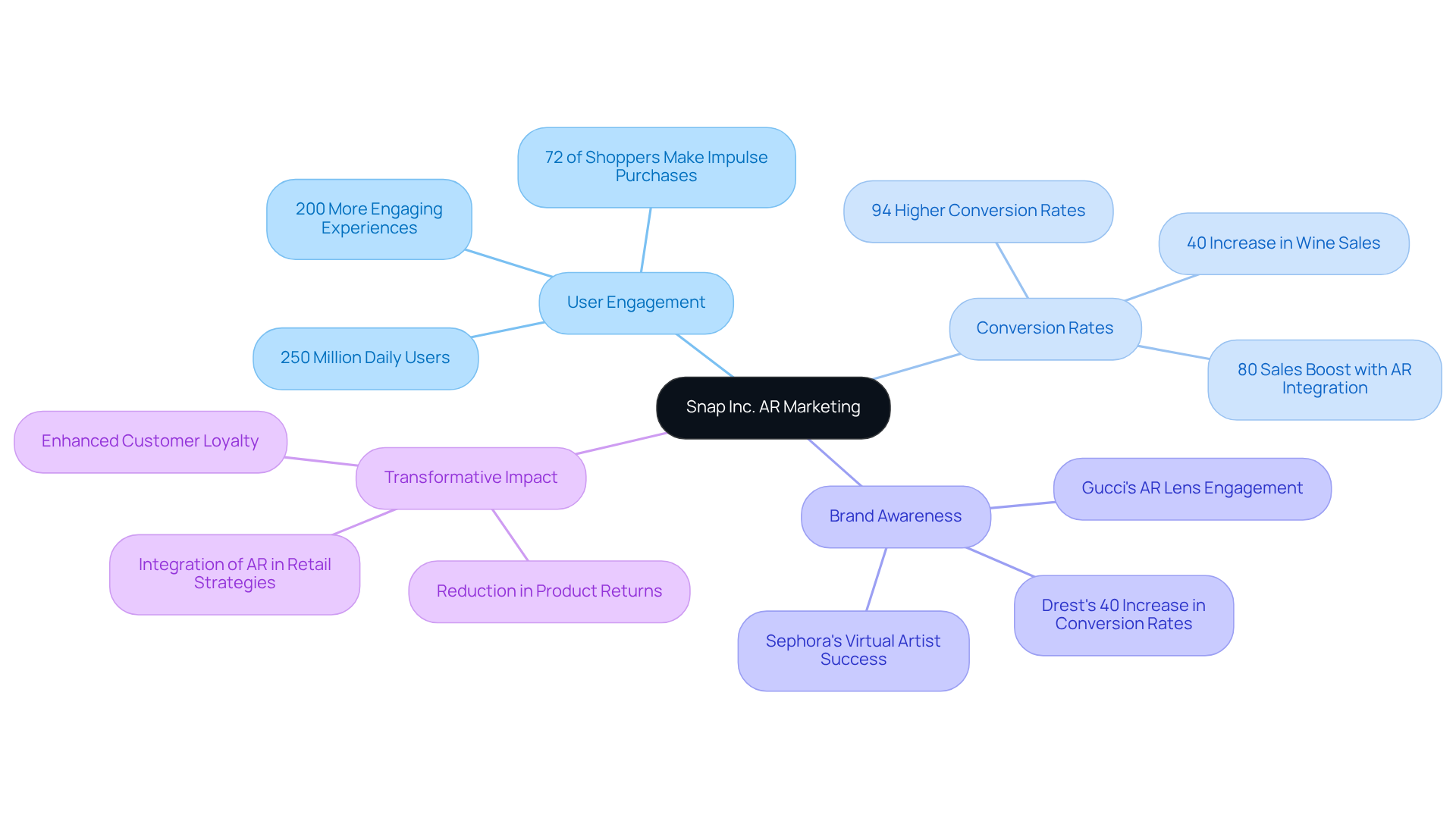
Qualcomm: Innovating AR Hardware for Mobile E-Commerce
The innovative platform stands at the forefront of augmented reality solutions, collaborating with AR companies to pioneer immersive XR interactions that significantly enhance customer engagement and loyalty. By leveraging advanced technologies, this platform empowers e-commerce companies to create engaging interactions accessible from any location, thereby enhancing customer involvement and driving sales.
Research indicates that AR experiences can generate nearly double the engagement levels compared to their non-AR counterparts, underscoring the effectiveness of this technology in enhancing user interaction. For instance, companies utilizing AR companies' solutions from Magic's platform have reported substantial increases in customer conversion rates, illustrating the concrete advantages of AR technology in online shopping.
As the retail landscape evolves, the role of this interactive platform in integrating AR companies into marketing strategies becomes increasingly vital, with a growing number of companies expected to adopt AR for customer interaction in the coming years.
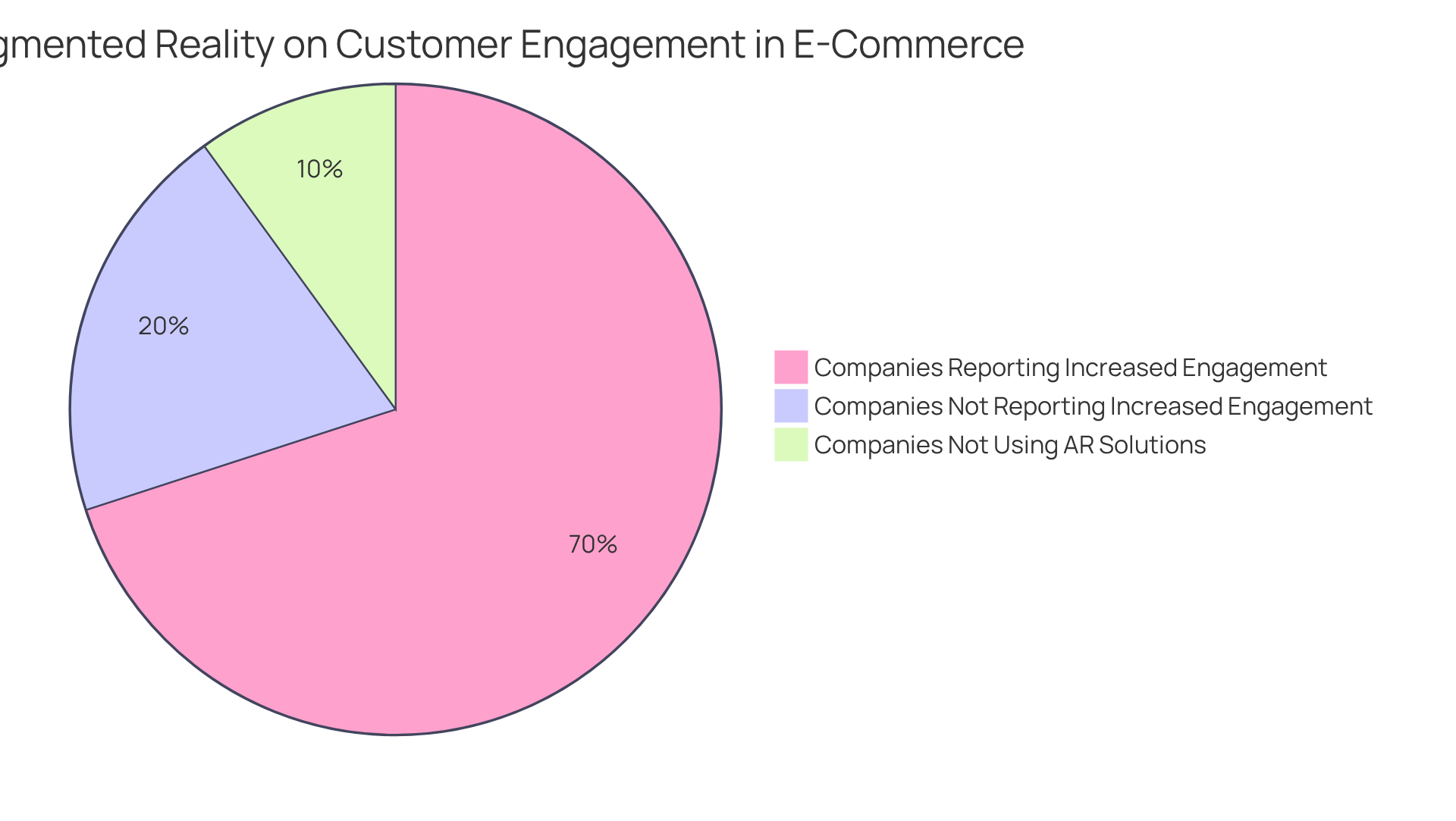
Magic Leap: Elevating Retail Experiences with AR Technology
The innovative platform is at the forefront of AR companies, revolutionizing retail interactions. Their technology empowers retailers to craft immersive environments where customers can engage with products in a virtual space. By integrating AR companies into the shopping experience, the company helps businesses enhance customer engagement and drive sales.
Research indicates that products featuring AR content experience conversion rates that soar by 94%, while Shopify reports that merchants leveraging AR for product visualization face 40% fewer returns. This groundbreaking approach enables companies to cultivate authentic and interactive experiences that resonate with consumers, positioning Magic Playbox as a frontrunner among AR companies in the retail landscape.
As consumer preferences evolve towards interactive shopping experiences, the demand for AR companies is on the rise, with nearly 60% of the U.S. population projected to be frequent AR users by 2025. The studio's commitment to delivering tailored, high-quality services aligns with the shifting needs of businesses, ensuring they remain competitive in an increasingly digital marketplace.
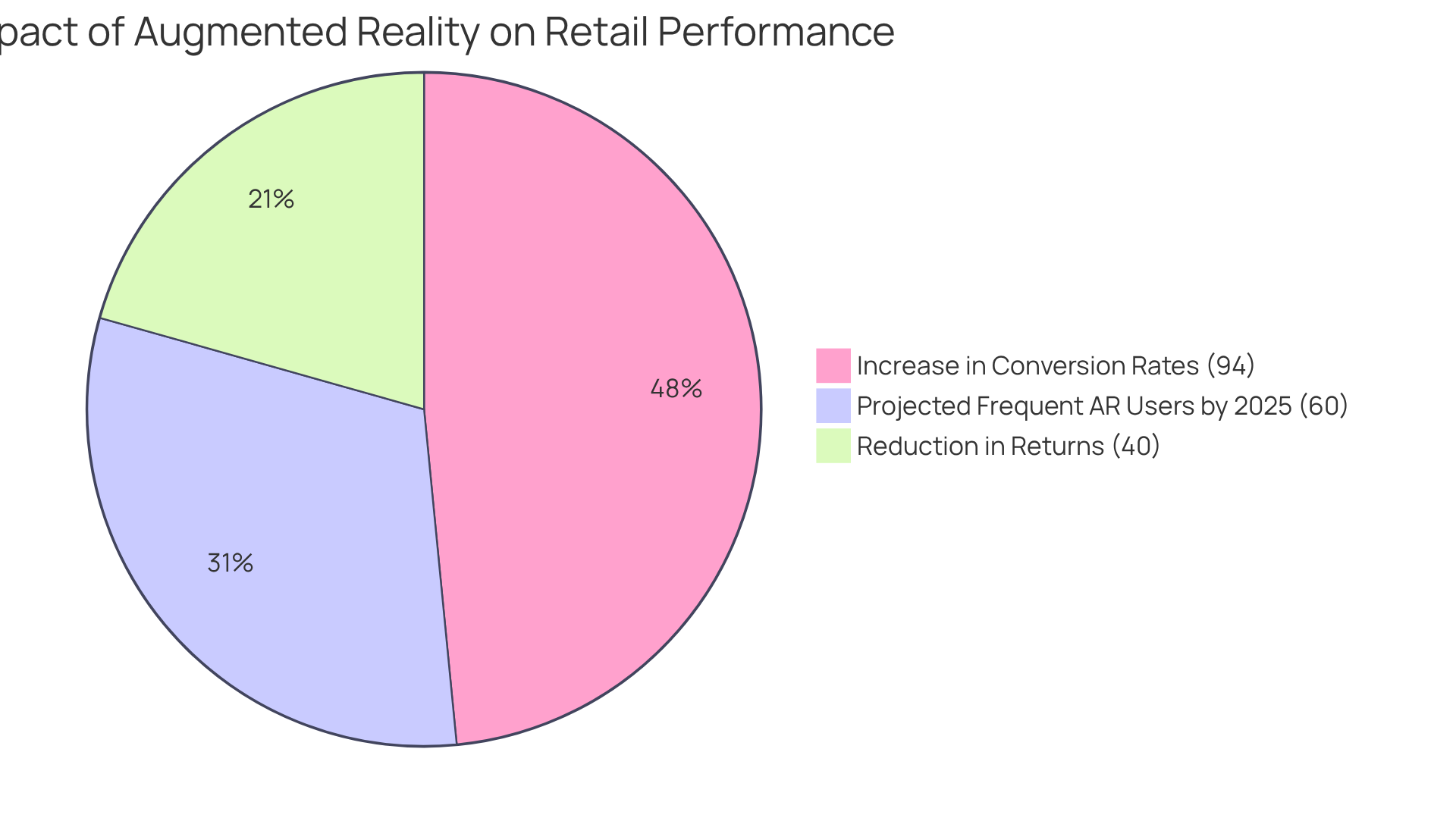
PTC: Transforming Product Visualization with Vuforia AR Solutions
At the forefront of AR companies, this innovative platform provides cutting-edge tools that enhance product visualization for e-commerce brands. By facilitating the development of interactive 3D models and engaging AR simulations, AR companies transform the way consumers interact with products online. This forward-thinking approach not only boosts customer engagement but also significantly reduces return rates.
Research indicates that AR shopping experiences can decrease returns by 25% to 40%, offering consumers a clearer understanding of product dimensions, styles, and functionalities before making a purchase. Brands utilizing AI-driven AR companies have reported a remarkable 20% rise in conversion rates, underscoring the effectiveness of these AR companies in driving sales.
With the global AR shopping market projected to surge from USD 4.0 billion in 2023 to USD 54.7 billion by 2033, Magic Playbox's commitment to advancing AR companies is reshaping how brands present their offerings in the e-commerce landscape. This evolution ultimately leads to higher conversion rates and enhanced customer satisfaction, making collaboration essential for brands looking to thrive in a competitive market.
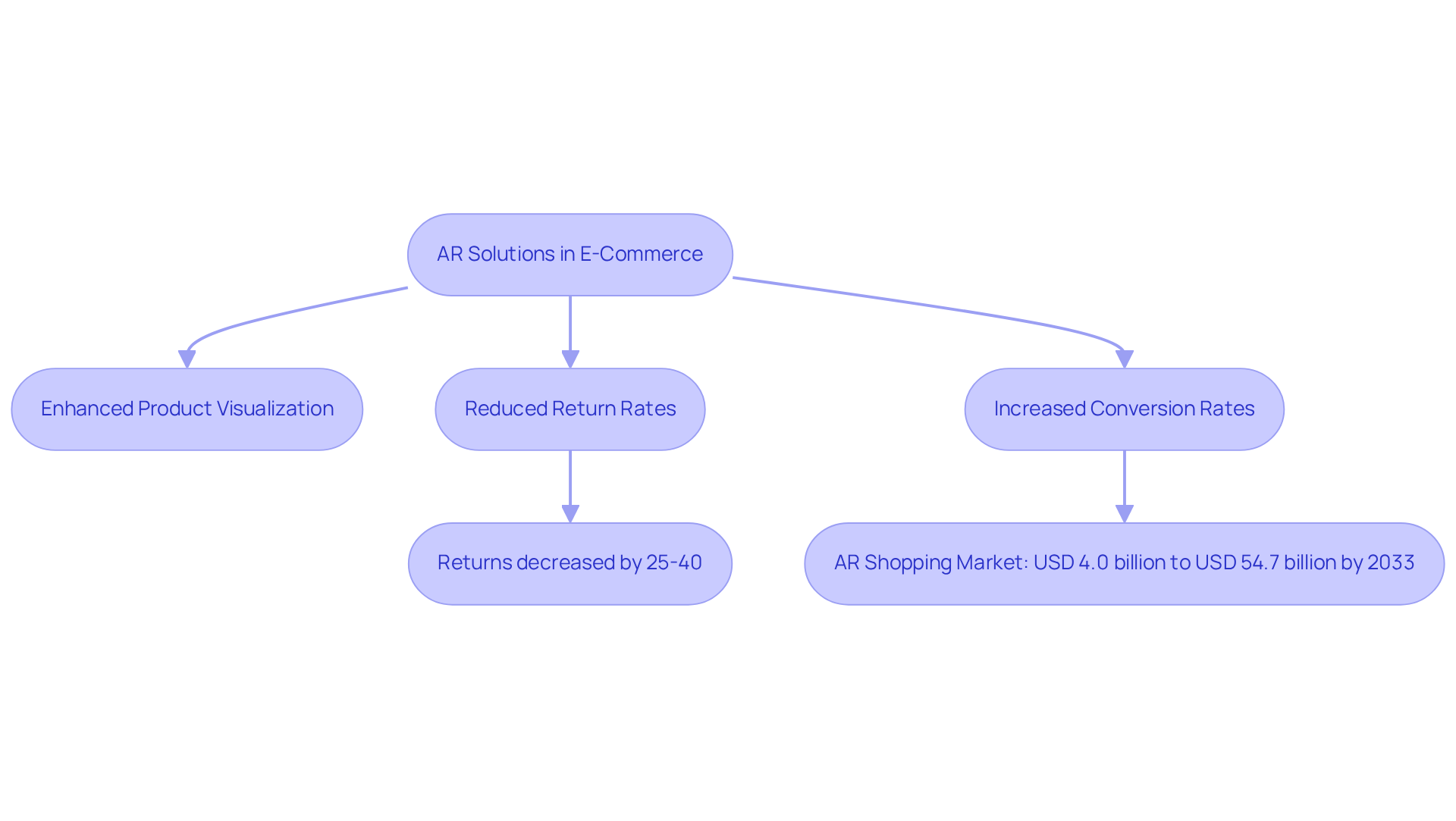
Conclusion
The integration of augmented reality (AR) into e-commerce is fundamentally transforming consumer interactions with brands, rendering shopping more engaging and intuitive. Leading AR companies such as Magic Playbox, Apple, Meta, and Google demonstrate that the application of AR technology not only enhances product visualization but also significantly boosts sales and customer satisfaction. Compelling statistics throughout this article underscore the growing necessity for e-commerce platforms to adopt AR features, meeting evolving consumer expectations and maintaining a competitive edge.
Key insights reveal that:
- AR can drive conversion rates up to 94%
- AR can reduce return rates by as much as 40%
- AR can foster greater customer loyalty
With the AR market projected to reach $50 billion by 2024, brands leveraging these innovative solutions are poised to see substantial improvements in user engagement and overall sales performance. Companies like Microsoft, Unity, Snap Inc., Qualcomm, Magic Leap, and PTC are at the forefront of this transformation, providing essential tools and platforms that empower retailers to create immersive shopping experiences.
As the retail landscape continues to evolve, embracing augmented reality is not merely an option but a crucial strategy for brands aiming to thrive in a digital marketplace. The potential for AR to revolutionize e-commerce experiences is immense. It is imperative for businesses to explore and implement these technologies. By doing so, they can enhance customer interactions, drive conversions, and ultimately reshape the future of shopping. The time to act is now—invest in AR solutions to stay ahead in the competitive e-commerce arena.
Frequently Asked Questions
What is Magic Playbox and what does it offer?
Magic Playbox is a leading augmented reality (AR) company that transforms e-commerce by creating immersive AR solutions that allow users to visualize products in their own environments, enhancing the online shopping experience.
How effective are AR applications in increasing sales?
Research indicates that AR applications can increase sales by up to 80%, and 63% of customers believe that AR enhances their shopping journey, demonstrating its effectiveness in fostering customer engagement and loyalty.
Why should e-commerce brand managers consider integrating AR features?
As the AR market is projected to reach $50 billion by 2024, integrating AR features helps e-commerce brand managers remain competitive and meet the evolving expectations of consumers.
What role does Apple play in augmented reality for shopping?
Apple has become a leader in AR technology with the launch of ARKit, enabling developers to create AR applications for iOS devices, which enhances the shopping experience through features like virtual try-ons and interactive product displays.
How does AR impact conversion rates in retail?
Research shows that AR can elevate conversion rates by as much as 40%, with 61% of consumers preferring retailers that offer AR interactions.
What innovations has Meta introduced in social commerce using AR?
Meta has integrated AR into its platforms like Instagram and Facebook, allowing features such as AR filters and virtual try-ons, which enhance user interaction with products and boost visibility and sales.
How significant is user engagement when using AR in social commerce?
Brands that utilize AR filters have reported engagement levels up to 11 times higher than static displays, indicating the strong impact of AR on user engagement.
What are the preferences of Gen Z consumers regarding AR in e-commerce?
Research indicates that 92% of Gen Z consumers express a strong desire to use AR tools for e-commerce, prompting retailers to invest in these technologies.
What is the potential sales impact of AR modules from companies like Enchanted Playhouse?
AR modules from platforms like Enchanted Playhouse can elevate sales by as much as 80% for businesses, highlighting the effectiveness of AR in increasing user engagement and revenue.




